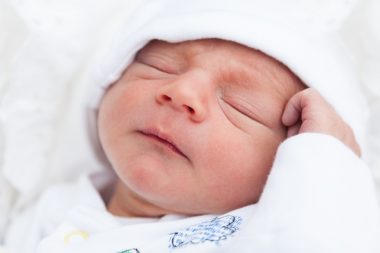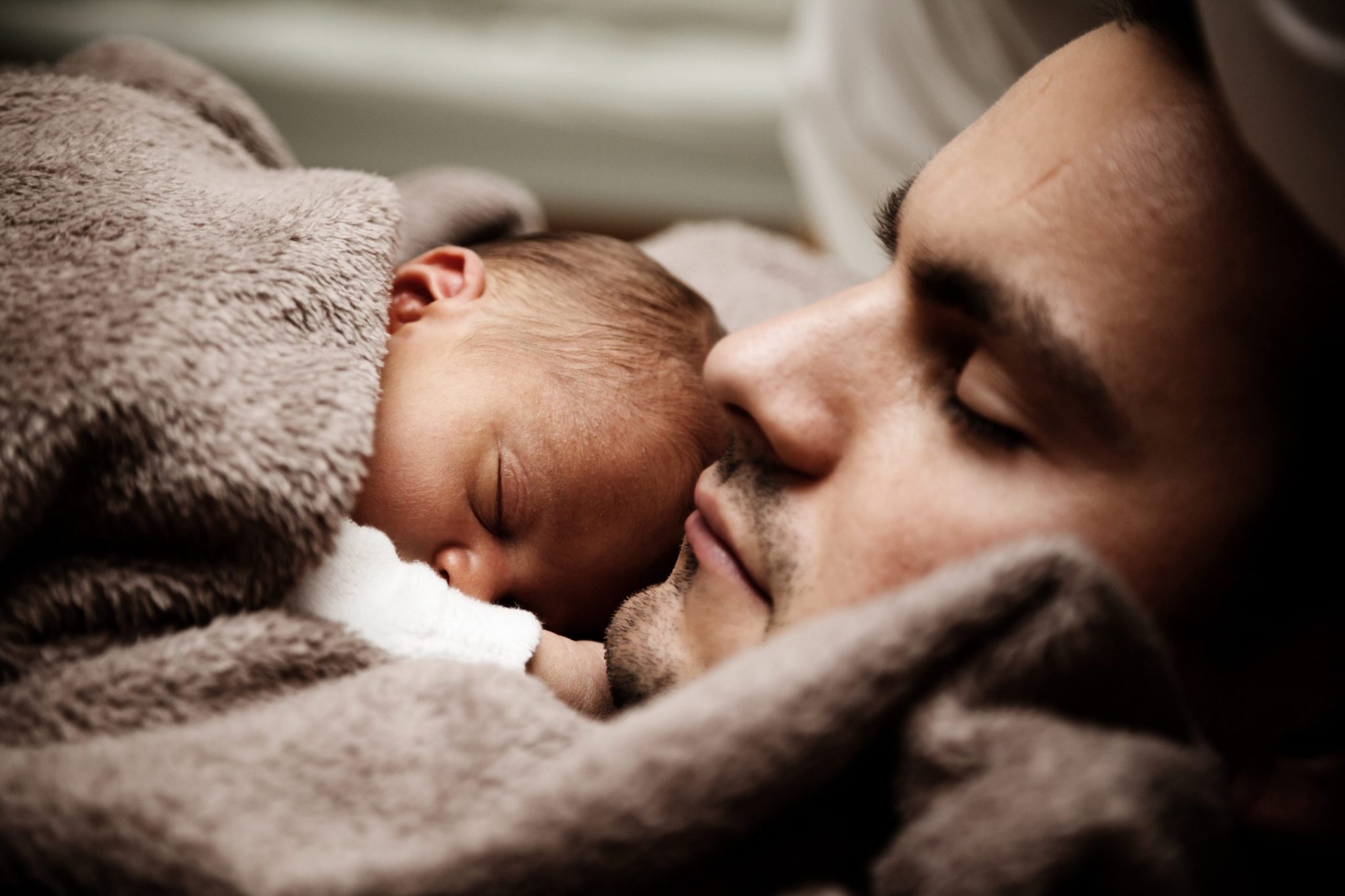Sleep regression is one of the biggest nightmares for new parents. This is an experience that every parent will ultimately go through without a doubt. It can occur at different ages and stages of a baby’s development.
In fact, sleep regression can start anytime from 4 months and go all the way up to 24 months. Quite simply put, sleep regression is a stage during a child’s development when their sleeping habits shift.
There are many different ways to identify the onset and presence of sleep regression. One of the most obvious signs is the irregularity of sleep. You will notice that your child is no longer sleeping through the night. Moreover, their naps will become much shorter and more interrupted.
Adults use different terms for interrupted sleep patterns. Chances are before you had a baby you never knew of the term “sleep regression”. However, now that you are a parent, let us introduce you to the nightmare of sleep regression.
ALSO READ: Why Won’t My Baby Sleep?
Does it feel like your child is waging a war against napping and sleeping?
Is your baby waking up every 20 minutes?
Do you constantly feel tired and exhausted?
If you answered yes to all of the above, then you are definitely dealing with the sleep regression demon.
So let us break down sleep regression!
How to detect sleep regression?
As babies grow and develop, their sleep patterns may change. And sometimes, this change translates into sleep regression.
Baby sleep regression refers to a disruption in a baby’s sleep pattern.
It can occur at various stages of growth and development. And it differs from child to child.
A baby who is sleeping well suddenly starts
- to fight naps or bedtime
- to have difficulty falling asleep
- to take shorter naps or skipping naps
- to wake frequently at night
- to fuss and cry with no apparent reason.
Although the common stereotype is that babies don’t sleep properly, some babies begin to sleep regularly through the whole night from as early as 3 months of age, according to this study.
How long does sleep regression last?
Sleep regression usually lasts between 3 to 6 weeks. Most parents are caught off guard. They describe it as a phase that hits out of nowhere. There are no solid reasons why their child suddenly resists sleep.
Is sleep regression the same in all children?
The short answer to this one is no. Every child is different. So if you have heard of stories or shared them with other parents, you might not find similar responses or experiences. Some children experience sleep regression at a certain age, and others experience it much earlier or later.
Funnily enough, most parents can agree that sleep regression usually hits when you think you’ve finally conquered all of your baby’s sleep challenges.
ALSO READ: How To Cope With Sleep Deprivation As A New Parent
What are the signs of sleep regression?
The signs of sleep regression in a child can vary depending on their age and the changes they go through as they grow.
Some common signs to look out for are:
- Baby has difficulty falling asleep at bedtime
- Baby is unable to self-soothe
- Baby frequently wakes up at night and cannot sleep soundly
- Baby starts resisting daytime naps and/or takes shorter naps.
- Baby’s sleep schedule changes, and nap times become more inconsistent.
- Baby has an irritable mood and becomes more clingy than usual.
Most babies will exhibit a majority of the above signs. Many babies can still sleep at night without night wakings while fighting the bedtime routine or naps.
As mentioned before, the signs and their severity differ according to the child, age, and the changes the child is going through.
How do I know my baby has sleep regression?
The most common and obvious sign of sleep regression is your baby suddenly waking up more often at night.
Other signs often include:
- Your baby’s daytime naps may become shorter
- Your baby may become overtired due to poor naps and waking up more at night
- Your baby might resist naps/bedtime and need more help settling in for sleep
- Your baby may no longer easily go back to sleep when they wake
- Your baby may have general fussiness/irritability with no apparent cause
It’s common for your baby to take shorter and fewer naps as they grow older. However, other behavioral changes could also signify sleep regression.
What causes infant sleep regression?
Sleep regression is a common and normal occurrence.
Every child experiences it at some age. Some children experience it earlier, while others experience sleep regression later.
The most common cause of sleep regression is your child hitting a developmental milestone. But that is not the only cause of sleep regression. Other reasons may include the following:
Illness
When a baby is ill, they are often uncomfortable and restless. This affects the quality of their sleep, sometimes causing it to regress. Health reasons that contribute to sleep regression include, but are not limited to:
- Fever
- Seasonal allergies
- Food allergies
- Eczema
- Pain from an ear infection or any other infection
- Upset stomach
Teething
For some babies, teething doesn’t cause any pain or discomfort. Similarly, teething for some babies can be quite uncomfortable and painful. Teething may affect the sleep behavior of a baby and may cause it to regress.
Physical developments
Physical developments can also cause temporary sleep regression, including taking longer to fall asleep and waking up more at night.
Some examples of these developments include learning to:
- roll
- sit
- stand
- crawl
- walk
- babble
- smile
- interact
- talk
Cognitive bursts
A baby’s mental leap toward more awareness and independence often comes with a sense of insecurity. This can lead to separation anxiety, more difficulty separating for sleep, and the need for more reassurance at night.
Environmental changes
Environmental changes include many things such as:
- Shifts in the weather that affect the temperature of your baby’s room
- An outside disturbance (e.g. outdoor light shining into your baby’s room, a dog barking etc.)
- Crowds and noise in the house
All of these are examples of factors that affect your child’s sleep habits and patterns.
Separation anxiety
Separation anxiety indicates a baby’s fear that their parent will leave and not return. It is a common part of development, starting around 6-7 months of age and reaching its peak around 14-18 months.
Separation anxiety can cause many nights of disrupted sleep. During this stage, a baby may wake up several times and cry for one or both parents, often expressing a strong preference for one.
Changes in routine
Any changes in your child’s regular routine can temporarily cause changes in their sleep patterns.
Some examples are:
- A parent traveling and being away from home for a while
- Making a habit of checking on your child at night and soothing them to sleep while they are sick,
- Visitors at the house contributing to delays in the baby’s bedtime routine
Changes in sleep needs
As a baby grows, their sleep needs change. When you don’t adapt your baby’s sleep schedule to their changing needs, they may have difficulty falling asleep or experience frequent night wakings.
Potty training
Potty training can cause sleep regression in two ways.
Potty training makes your toddler more aware of the sensation of needing to use the bathroom. This awareness alone can cause more night wakings.
Parents make getting to the bathroom before an accident happens a priority. Your toddler learns quickly that if they call for you, you’ll come running, day or night. This can lead to an increase in night wakings.
Changes in family routine
Any big life changes, such as starting a daycare, the birth of a new sibling, parents’ divorce, or moving to a new place, can result in changes in sleep.
When does sleep regression occur?
The earliest and most common period of time during which almost every single parent comes face to face with this demon is the 4-month mark. Consider this one permanent, parents.
4 month sleep regression
Around 4 months, your child goes through their first transformative phase. This is when your baby will shed their more babyish sleeping patterns and shift towards different sleep cycles. This period of transition is not usually a very smooth one. It includes a lot of late nights (if not sleepless nights altogether). The naps will grow shorted and the mood swings will get wilder.
6 month sleep regression
What about the 6-month mark? Sorry to break it to you all, but that is more of a myth than a reality. What actually happens at the 6-month mark is a growth spurt. This naturally interrupts sleep patterns as well as other habits. Does it qualify as sleep regression though? Nope.
8 month sleep regression
Around the 8-month mark, your baby is undergoing a lot of developmental milestones. Sleep regression that occurs at this age can hit anywhere between the 8 to 10-month mark. This is around the same time that children start crawling and becoming more active – pulling themselves up and cruising etc. Add to that the rapid brain development, language recognition, and teething and you have yourself an irritable, fussy, and hyperactive child. Irregular sleep patterns at this age are to be expected.
ALSO READ: What Prevents Babies From Sleeping Through the Night?
9 month sleep regression
The 9 month sleep regression is mostly an extension of the 8 month sleep regression phase. What usually occurs is that some babies experience sleep regression at 9 months as opposed to 8 months. That is completely normal since every child grows at a different rate.
10 month sleep regression
Similarly, the 10 month sleep regression period is usually a culmination of months 8 and 9. The only difference with sleep regression when it strikes at the 10-month mark is the fact that most children can stand up in their beds at this point. This might complicate matters a little.
11 month sleep regression
This particular one is the least common of all. Sleep regression at 11 months of age is the least reported one. The most important thing about this particular one is that parents will start noticing that their child is no longer receptive to two naps per day. While it may appear that your child is ready to transition to single nap days, it is too early. Most children switch to only one nap per day between 15 to 18 months. Treat this as any other regular sleep regression phase.
ALSO READ: What is the Best Way to Get My Child to go to Sleep?
12 month sleep regression
Similar to the 11-month experience, 12 month sleep regression has one added advantage. While you should still treat it as a phase, children who experience sleep regression at 12-months are usually ready to switch to a one nap per day schedule. However, you must not try to push the transition. Treat this as a speed bump along the way.
15 month sleep disruptions
At 15-months, your child will begin walking and as a result experiencing far more stimulation than they used to. It is normal to expect changes and fluctuations in their sleep cycle at this stage. It is quite common for children at this age to wake up at night, particularly if they are used to two naps per day. During this age, you should know that you are not dealing with sleep regression. There are no 3-6 weeks of endurance, after which sleep issues will magically disappear. Now is the time to start fixing a proper schedule for your child. This will determine the quality of their sleep (as well as mood and habits) moving forward.
18 month sleep regression
This is a sensitive age for both children and parents. At 18 months, your child can talk (or babble at least), walk, express themselves, and actively involve themselves in the world. Disruptions in sleep patterns are to be expected at this age. Moreover, a lot of children begin experiencing separation anxiety at this age. To top it all off, teething does not make this a pleasant experience at all.
ALSO READ: What is the Best Baby Sleep Schedule?
2 year sleep regression
By the 2-year mark, far too many factors play a role in your child’s sleep patterns. You can no longer chalk it up to something as simple as a growth spurt or developmental milestones. With potty training and the transition to a bigger bedroom, perhaps, your child’s sleep habits will shift. Around that age, many children start having nightmares and night terrors. This can be quite taxing to deal with. It will contribute to a lot of wakeful nights.
When should I be concerned about sleep regression?
Sleep regression is normal and natural. Eventually, this phase passes.
However,
- Sleep regressions can be hard both on you and your baby.
- Sometimes sleep problems can be a sign of an underlying health issue.
You should consult an expert if you feel like:
- Your baby’s night wakings are becoming unbearable or abnormal
- Your baby has difficulty breathing or focusing, experiences frequent night terrors, snores, or exhibits any other health issues
- Your baby’s sleeping issues persist
Can you prevent sleep regression?
Unfortunately, there is no way to avoid sleep regression. It is a natural part of being a baby and a toddler. The good news is that it passes.
Following a bedtime routine and sleep schedule can help reduce the likelihood of sleep regressions, but there is not much more you can do about preventing sleep regression.
There are ways to handle regressions effectively. The following tips can prove to be quite useful as you navigate sleep regression:
- Try to get to the cause of sleep regression. Is it an illness, separation anxiety, or a developmental change?
- Does your child need medical attention, a change in daytime parenting, or an adjustment to their schedule?
- Try to prevent new problems by watching your baby’s clues. How do you respond to your child’s needs? How do you respond to your child creating new sleep habits or associations that you can’t sustain long-term?
- Take care of yourself. Spare some time for self-awareness. How do you feel, and how do you react to stress or any problems?
- Implement a back-to-bed plan. Do you have a plan in place to help you get back to your usual sleep habits and patterns?
- Find out if you need any expert help.
What to avoid during sleep regression?
Usually, sleep regression drives parents into panic mode, and they struggle. This usually results in coping mechanisms and techniques that cause new sleep associations in your baby.
Below are some things you should watch for during sleep regression.
- Try to stick to your bedtime and sleep guidelines even during difficult periods. Don’t adjust your bedtime routine.
- Don’t create new sleep supports, such as letting your child sleep in your bed or rocking them back to sleep.
- Don’t ever punish your baby.
- Don’t panic. This is a temporary situation, and things will return to normal soon. Maybe there will be a “new normal” due to the changes in your growing baby’s needs and sleep patterns.
How to fix sleep regression?
Now, this is a question every parent is dying to know. The 4-month sleep regression period is unarguably the toughest and is entirely unavoidable. There is no avoiding it. You just have to see it through. The good part is that it gets easier once you are done with the first one.
Some things you can do to fix sleep regression and make it easier to deal with are:
- Extra feedings: Do not hesitate to introduce extra night feedings. This is a temporary thing so don’t worry about messing up your child’s feeding schedule.
- Monitor sleep schedules: It’s important to monitor your child’s sleep schedule to deal with sleep regression in an informed manner. Invidyo’s Smart AI-Powered Baby Monitor allows you to log your baby’s sleep to determine sleeping habits and trends. According to research, lack of adequate sleep in the first 24 months of a child’s life can cause physical and cognitive developmental problems in the future.
- Seek help: This is a time when you will need all the help you can get. Don’t shy away from asking for help from your partner, family, or friends.
- Offer comfort: You will need to cuddle and kiss your child more often. However, be careful not to introduce new habits such as rocking or reintroducing old habits such as a pacifier (if your child has been weaned off it).
- Early bedtime: You can totally introduce earlier bedtimes. Lesser sleep leads to crankiness and mood swings which contribute to missed sleep and now you have a bigger problem on your hands. Don’t be afraid to offer an earlier bedtime should you see it fit.
ALSO READ: Sleep in Babies: A Definitive Guide for First Time Moms
As long as you understand the dynamics of sleep regression, you will not find the need to compare your experiences with another parent. That is why breaking down the fundamentals of sleep regression is important to be better prepared to tackle it. Understand why it happens and when. Then you will be better equipped to deal with it.
How to cope with sleep regression as a parent?
Sleep regression periods are stressful for any parent. However, by taking care of certain things, you can make sure you’re not stretched to your limit during this period.
Nap whenever you can
Lack of sleep can lead to exhaustion. So you should use every chance to nap.
Rest is something all parents need. It improves mood and memory, boosts hormone production, and improves health.
- If you are at home during the day, try to nap when your baby naps.
- If you’re at work, you may be able to take a power nap during lunch in your car or in an unused office.
Take good care of yourself
If you don’t have the chance to nap every day, try some other methods to support yourself.
- Eat a balanced diet
- Stay hydrated
- Exercise and practice yoga
- Meditate
- Remind yourself that these days are temporary
- Avoid alcohol and tobacco
Ask for help
Mothers usually feel the need to do everything on their own. But looking after a child is physically, emotionally, and mentally demanding.
- Share nighttime and daytime baby duties with your partner or another loved one so you can both get some sleep.
- Talk to other parents about how they cope with their children’s sleep issues.
- Ask your doctor for advice to improve your child’s sleep.
What happens when sleep regression ends?
Your baby’s sleep is ever-changing. From infancy to toddlerhood, almost everything in your baby’s world will impact their sleep.
Your baby will regress and progress in their sleep; this is just part of their growth and development.
This means that sleep regressions will begin and eventually end. And before you know it, you may start to see your child’s routines re-established.
So, what happens when a regression ends?
- You will notice that your baby’s sleep becomes calmer
- Your baby’s sleep routine will be re-established
- Your sleeping and feeding schedules will be back on track
- Your baby will enjoy their surroundings more
- You will feel more rested
According to an article in medicalnewstoday there is not much current and formal research on infant sleep regressions.
Some older research suggests regressions are responses to the developmental changes babies experience during the first couple of years of life. Teething, travel, stress, a change in routine or an illness can also cause temporary sleep disruptions in children.
Experts emphasize the fact that sleep regression is normal in babies and toddlers. Even older children may experience it.
It can be daunting for parents to have restless nights and days but some experts think that sleep regression points to the fact that your baby is going through an intense development period. So in a sense, it is a positive sign as it indicates a growth spurt or rapidly approaching developmental milestone.
At what age did your child experience sleep regression? Let other parents know in the commentes: medicalnewstoday.com, verywellfamily.com, health.clevelandclinic.com, whattoexpect.com, webmd.com










